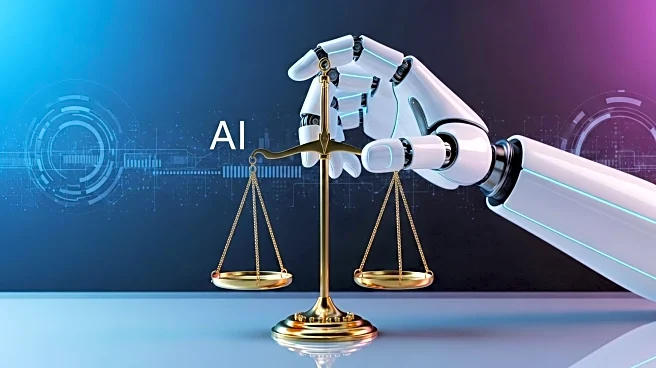What is the story about?
What's Happening?
José Rodríguez Coching, head of legal innovation and technology at KPMG in Spain, has been recognized for his efforts in integrating digital skills into legal work. He has developed KPMG Katalyst, a platform used by over 400 organizations across 90 jurisdictions, featuring more than 40 tools utilizing data analytics, automation, and artificial intelligence. In 2025, Rodríguez Coching introduced four types of AI agents to autonomously perform tasks and accelerate legal work. His initiative, AI Legal Ninjas, encourages lawyers to create digital tools, with about a third of KPMG's lawyers now involved in designing and adapting these technologies.
Why It's Important?
The integration of AI and digital tools in legal services represents a significant shift in how law firms operate, potentially increasing efficiency and reducing costs. By empowering lawyers to create and use digital tools, KPMG is setting a precedent for other firms to follow, which could lead to widespread adoption of technology in the legal sector. This transformation may benefit clients through faster and more accurate legal services, while also positioning KPMG as a leader in legal innovation.
What's Next?
As KPMG continues to develop and implement AI tools, other law firms may follow suit, leading to a broader industry shift towards technology-driven legal services. The success of these initiatives could prompt further investment in AI and digital skills training within the legal sector, potentially reshaping traditional legal practices and client interactions.
Beyond the Headlines
The ethical implications of AI in legal work are significant, as the technology must be used responsibly to ensure fairness and accuracy in legal proceedings. Additionally, the cultural shift within law firms towards embracing technology may challenge traditional roles and require ongoing adaptation from legal professionals.















